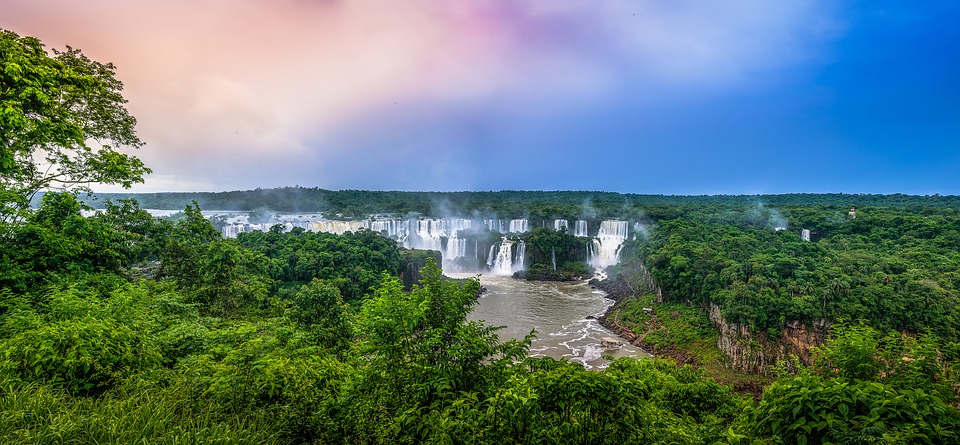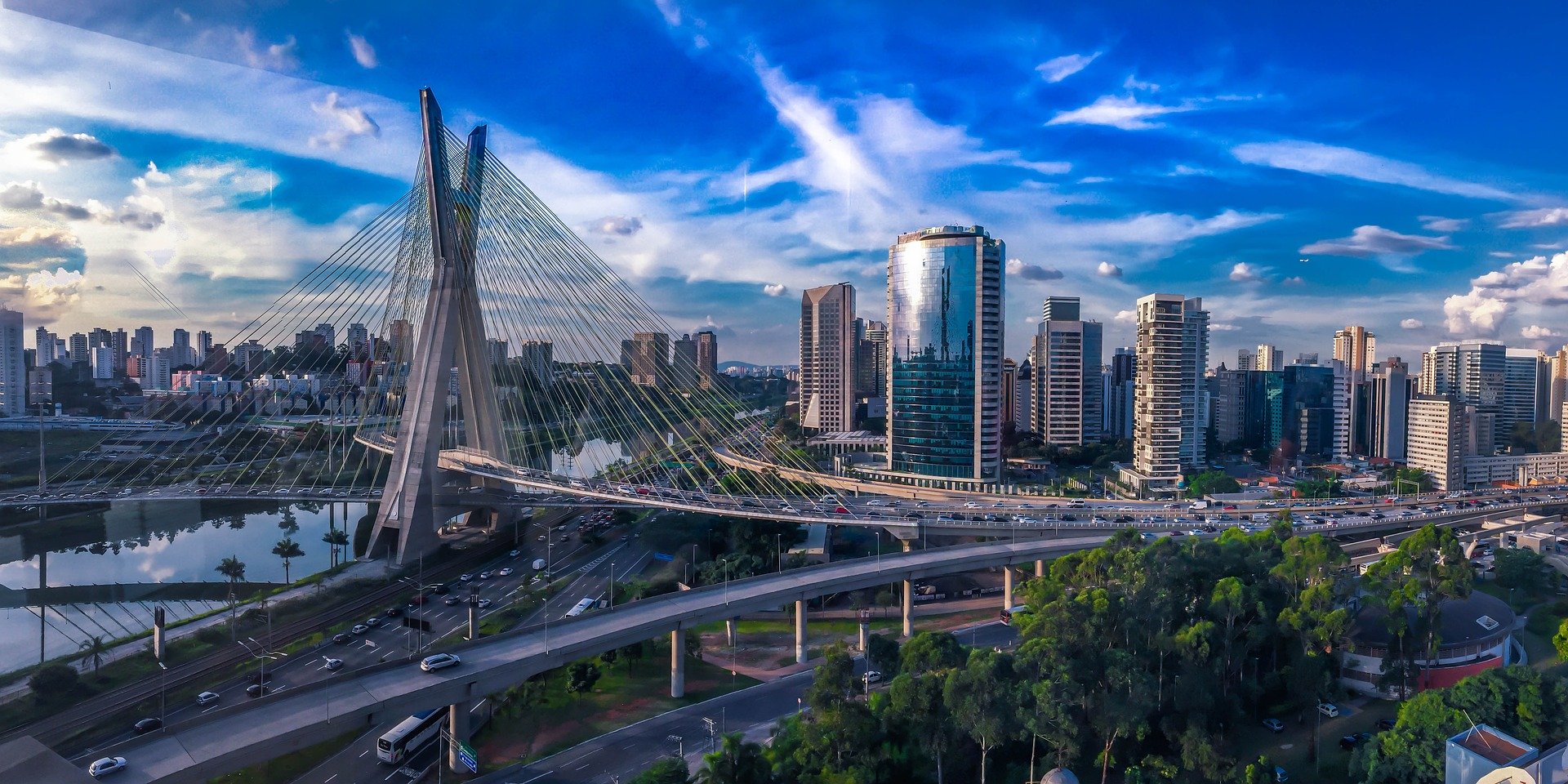NAŠ BLOG
SUPPORT CROWNED BY SPORTS SUCCESS
REPUBLIC OF SERBIA AND BRAZIL

Copacabana in Rio, favelas, the statue of Christ on Corcovado hill, Pelé and football, Brazilian coffee or the Amazon – there are numerous associations to this distant land which radiates authentic energy and cheerful samba rhythms. The unique spirit of the people of this country is colored by the traditions and customs of the American Indians, Portuguese colonists and the European immigrants. Portuguese influence is reflected in language, religion and architecture.
Brazil and Serbia have historically always shared similar political positions. The 80th anniversary of successful bilateral relations was marked last year.
By the decree of King Aleksandar Karadjordjevic on 31. May 1929., the Consulate General of the Kingdom of Yugoslavia in Sao Paulo was opened. Nastas Ilic has been appointed Consul General and the first official representative of Serbia in Brazil. The Embassy of the Kingdom of Yugoslavia, based in Buenos Aires, was opened in 1938. In 1936, the Brazilian government accredited its envoy, Joaquim Eulali do Nascimento Silva, in the Kingdom of Yugoslavia, on non-residential basis based in Athens. Brazil opened its office in Belgrade in 1939.
Decree of King Alexander I on the appointment of Nastas Ilic as Consul General of the Kingdom of Serbs, Croats and Slovenes in Sao Paulo, Belgrade, 1. June 1929. (source: Archives of Yugoslavia)

After World War II, diplomatic relations between Yugoslavia and Brazil were renewed in 1946. At the beginning of 1947, deputies were accredited, and in 1952, representative offices were raised to the level of embassies. Mr. Rui Ribeiro Coto, first as chargé d’affaires, and since 1952 as Ambassador, was the head of the Brazilian diplomatic mission in Belgrade for 16 years. Due to the great merits of this diplomat for the improvement of Yugoslav-Brazilian relations, Josip Broz Tito awarded him the Order of the Yugoslav Flag with a ribbon during his farewell visit.
The boom of Yugoslavia’s industry resulted in exporting different types of ships, tractors, various industrial equipment and means of transport, wagons, equipment for hydro and thermal power plants, all types of engines, pumps and complete railway material, consumables, chemicals and metal goods to Brazil. Reversely, Yugoslavia mainly imported coffee (the main Brazilian export item), cocoa, leather, tea and cotton from Brazil.
During the NATO bombing, the doors of the Brazilian embassy remained open. Modern Brazil has not recognized the self-proclaimed state of Kosovo, observing the sovereignty and territorial integrity of the Republic of Serbia.
Sportsmen as ambassadors of joint energy
Sport is a common passion of both nations, mostly expressed through the love for football. Even the Red Star Stadium in Belgrade was named after one of the most famous football buildings in the world, Maracana Stadium in Rio.
One of the most famous players of all time, Pelé, said goodbye to the Brazilian national team on 18. July 1971. in a friendly match against Yugoslavia. On that occasion, Ambassador Mirko Ostojic handed him the Order of the Yugoslav Flag with a gold star at a reception organized at the SFRY Embassy in Rio de Janeiro to honor him.
Friendly football match between Brazil and Yugoslavia on the occasion of Pelé’s farewell to the national team, Rio de Janeiro, 18. July 1971. (source: Archives of Yugoslavia)

Legendary Serbian football player Dejan Petkovic Rambo won all the trophies with the Brazilian clubs Vitoria, Flamengo and Vasco de Gama. He was the best player in Brazil three times, which was the success no one outside South America had achieved before. There is a plate with his name at the Fluminense stadium, and Rio de Janeiro declared him an honorary citizen. For his contribution to Brazilian football and the support provided to Rio de Janeiro in hosting the 2016 Summer Olympics, he was awarded the Rio Branco Order by the President of Brazil, da Silva. In one of his interviews, he emphasized that it was Serbian national spiteful temperament which brought him to such heights.
Dejan Petkovic Rambo (source: Instagram)

As the youngest holder of the black belt in karate at the age of 14 and after becoming multiple champion of Serbia in kickboxing, Dusica Duda Jankovic went to Brazil in 1999. There she was nicknamed Diamond, because she soon became, fighting under the Brazilian flag, the state champion, and the champion of South America in kick boxing. She also won the world championship in professional boxing and successfully defended the title several times.
Dusica Duda Jankovic (source: Instagram)

In the political and economic field, the two countries are in the same team today, working together to win improvements in bilateral cooperation and further development of interstate relations.

INTERESTING FACTS
- The word Brazil comes from a tree of Latin origin caesalpinia echinata which was once spread along the Brazilian coast; in Portuguese this tree is called pau-brasil, where the word brazil means red as ember
- The capital of Brazil – Brasilia, looks like an airplane from the air, which according to the legend marks the rise of the state. Brasilia, which was built in just 4 years, was ceremoniously opened on 21. April 1960..
- Brazil’s official birthday is 7. September 1822., when Prince Pedro declared independence from Portugal, which is today celebrated as National Day of Brazil;
- The national dish of Brazil is Feijoada, black beans cooked with smoked meat;
- The earliest forms of pottery found in the Western Hemisphere date 8,000 years back and were found in the Amazon River Basin in Brazil;
- Brazil’s national drink is Caipirinha (sugar cane drink mixed with sugar, ice and lime);
- On the current flag, green represents the forests of Brazil, yellow rhombus represents the mineral wealth, and the blue circle and stars represent the sky above Rio on the morning of 15. November 1889., when Brazil declared itself the Republic;
- The first official tourists arrived in Brazil on 1. January 1502., as part of a Portuguese research team;
- The Amazon rainforest is the largest in the world, producing 1/3 of the world’s oxygen;
- The first samba school was organized in 1928 in Rio;
- The first Brazilian carnival was organized in 1855;
- Rio de Janeiro was the capital of Portugal, the only European city which was outside Europe;
- Brazil and West Africa were once united;
- The largest Japanese community outside of Japan is located in Brazil;
- Brazil has been the largest coffee producer for the last 150 years.







 2018
2018